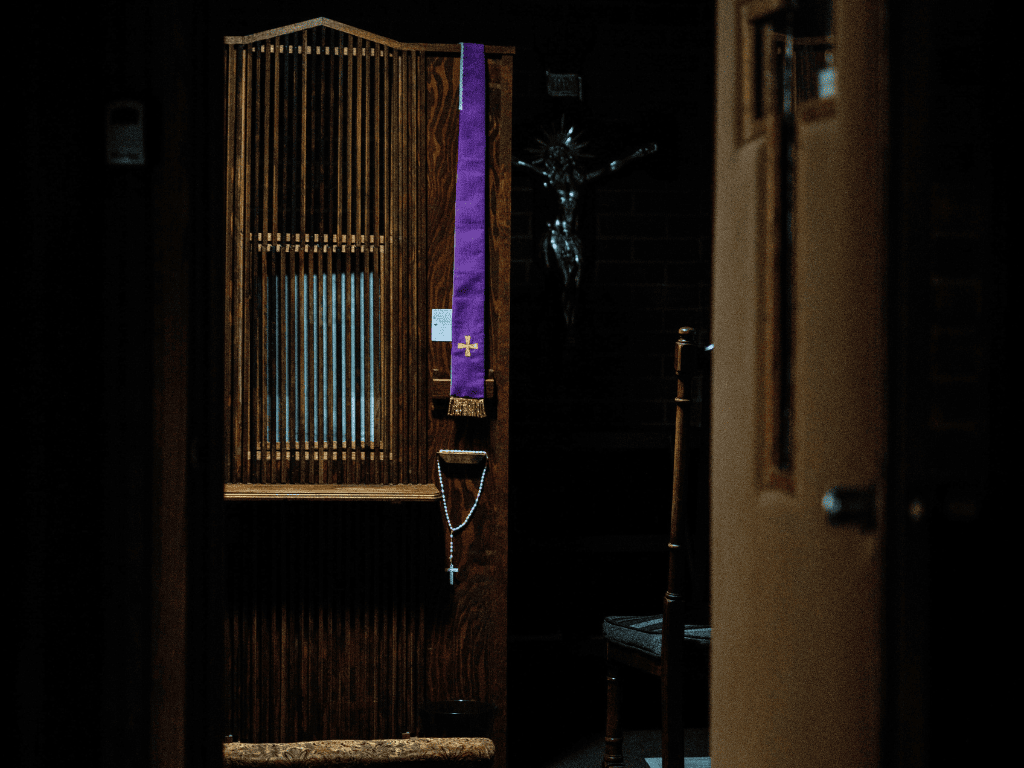Do you have that one nagging sin or set of sins that keeps coming up in confession? How can you move past it?
By continuing to trust in He who makes all things new.
“Sometimes in the battle against sin, we make the mistake of trying to just eliminate things,” said Fr. Jon Vander Ploeg, director of spiritual formation at The Saint Paul Seminary. “But actually, I have to be filled with someone. I want the love of God and the virtue, the grace, the good things of Him to fill more and more of my life.”
The nature of temptation
An important distinction off the top: temptation itself is not a sin. Rather, it serves as a crossroads where we make choices that can either draw us closer to God or lead us further away from Him.
This perspective aligns with the teachings of St. Teresa of Avila, who believed that saints, when tempted, grow in holiness by resisting those temptations.
Understanding sin
Sin, on the other hand, is a conscious choice to act against God’s will. It is not merely a disobedience to God but also an affront to reason.
Many people often have a skewed perception of sin, viewing it as something reasonable that God simply discourages. But sin, by its very nature, is unreasonable; it takes away from our lives rather than adding to them.
The Catholic Church draws a clear distinction between mortal and venial sin.

Mortal sin consists of three key elements: it involves a serious matter, the knowledge that the action is wrong, and a free choice to commit the act. Venial sins, though less severe, are still worth avoiding, as they hinder our spiritual progress.
Habitual sin and freedom
Repeatedly falling into the same patterns of wrongdoing can be discouraging and erode one’s sense of freedom.
Often, we actively cooperate in forming these sinful habits. We put ourselves in situations where we are likely to sin, creating a divided heart where we both love and hate the sin.
This inner struggle, as described by St. Francis DeSales, can be counterproductive to our spiritual growth.
It’s crucial, then, that we form our consciences to understand right from wrong. It is not enough to simply avoid knowing the truth; we should actively seek knowledge and truth to align our actions with God’s will.
Identifying the battleground
Ultimately, the battle against sin is a battle within our relationship with the living God.
“Sometimes in the battle against sin, we make the mistake of trying to just eliminate things. But actually, I have to be filled with someone. I want the love of God and the virtue, the grace, the good things of Him to fill more and more of my life.” — Fr. Jon Vander Ploeg, director of spiritual formation at The Saint Paul Seminary
Instead of solely focusing on eliminating sinful behaviors, we should also strive to fill our lives with God’s love, grace, and virtues. It’s just as important to reflect on what we want to grow in love with and what can replace the sinful desires in our hearts.
A key element to this process, according to Vander Ploeg, is “identifying the battleground.”
If temptation primarily arises in the realm of imagination, for example, engaging in wholesome activities like reading enriching literature can help heal and redirect the imagination. If the battleground is “in reality,” it becomes necessary to avoid the near occasions of sin.
“Resisting the allure of cookies is easier when you step away from the kitchen,” Vander Ploeg says.
You are not alone
By seeking the intercession of the Holy Spirit, Mary, the saints and the angels, we can discern our sins and replace them with the love and truth of the Lord. This path leads us to deeper freedom and peace in Him, enriching every aspect of our life on earth along the way.
And every time you walk out of the confessional is a chance to start anew. To replace tempting situations with environments that bring you closer to Christ.
And if you mess up again, don’t get discouraged. The Sacrament of Reconciliation doesn’t have a usage limit.
